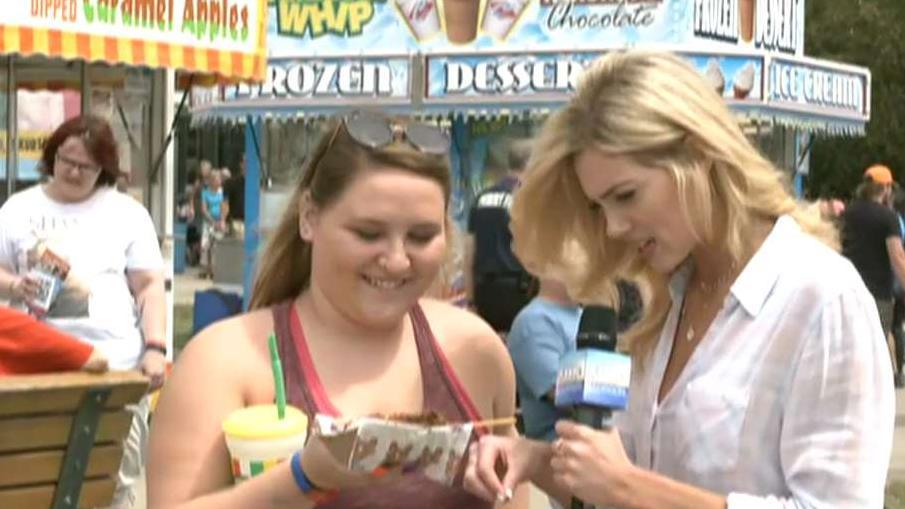Small businesses worry as Midwestern states cancels fairs
Six Midwestern states have canceled their state fairs to stop the spread of the coronavirus.
DEWITT, Iowa – The cancellation of the Iowa State Fair is yet another emotional blow for people who had to change their plans this year because of the coronavirus pandemic.
For food vendors, it means they are losing a major source of their income.
“I only work 63 days a year,” Charles Cox, owner of Chuckies Breaded Tenderloin, told Fox News. “That supplements our social security income.”
Cox has attended the Iowa State Fair - which draws more than 1 million visitors each summer - over the last seven years. It's one of the three he attends.
He and his business partner are now worried about how they will survive a summer without them.
“The three fairs are the only fairs Chuck does and two out of the three were canceled,” said Michelle Bowers, owner of a Chuckies Breaded Tenderloin food truck. “The season is pretty much done.”
CORONAVIRUS: WHAT YOU NEED TO KNOW
Farmers who typically use the fairs to showcase their produce are worried, too.
“Relationships are what builds your business and makes people when they go to the grocery store, stop at the meat counter, and look at [your] products,” Iowa pork farmer Suzy VenHorst told Fox News.
The Midwest is home to some of the largest state fairs in the country, drawing millions of people each year.
But many states in the region have canceled these events this year to help stop the spread of the coronavirus despite the economic hit.
Iowa joins six other midwestern states, including Indiana, Illinois, Ohio, Minnesota, North Dakota, and Wisconsin, who canceled their 2020 state fairs so far.
IOWA STATE FAIR DECLARES BEEFY, CHEESY WRAP AS 'BEST NEW FOOD' OFFERING OF 2019

A map of Midwestern states that have opted to cancel their state fairs.
Scrapping the fair this year will cost Iowa alone more than $100 million in lost revenue.
Minnesota, which normally holds the Midwest’s largest and longest fair with more than 2 million visitors, is expected to lose even more.
“There was a Super Bowl here a few years ago and the fair’s annual economic impact is about the same,” Jerry Hammer, general manager for the Minnesota State Fair, told Fox News during a zoom interview. “It’s just under $300 million and that’s just in the Twin Cities and that’s a conservative number.”
Economists say a loss in revenue from visitors at the fair could actually mean more opportunities in other industries across the region and that includes the domestic tourism sector.
“The state fair used to be this flush of economic activity that would come into each state on a rotating basis," Chad Hart, a professor of economics at Iowa State University, said. "Now people are going to say, ‘If I don’t have the state fair, what do I want to do for a fun summer activity that takes me up for a while?’”
He continued: “Will we see more like staycation type things where they stay within their local community and maybe spend more of that dollar there? Or do we see people wonder and say, ‘OK, how far can I drive?’”
As for Cox and Bowers, they are bringing the fair food to residents by parking their truck in various Iowa towns. They’re hoping this will make up for their loss of fair income.
“I've been selling more here than I do at the Cubs games in this town of 5,000," Bowers said during a Friday afternoon parked in the town of DeWitt, where she was met with a rush from a hungry lunch crowd.
CLICK HERE TO GET THE FOX NEWS APP
Bowers told Fox News she remains hopeful that they will pick up momentum into next summer before the fairs.
The Iowa State Fair hopes to resume at the Iowa State Fairgrounds from Aug. 12 through Aug. 22, 2021.
Minnesota’s State Fair will follow a few days later from Aug. 25 through Sept. 5, 2021.











































